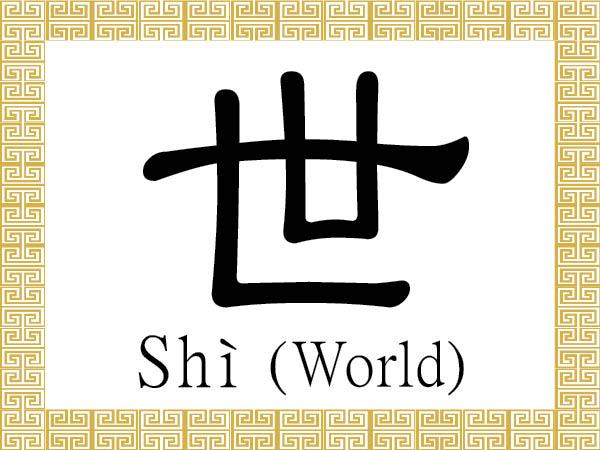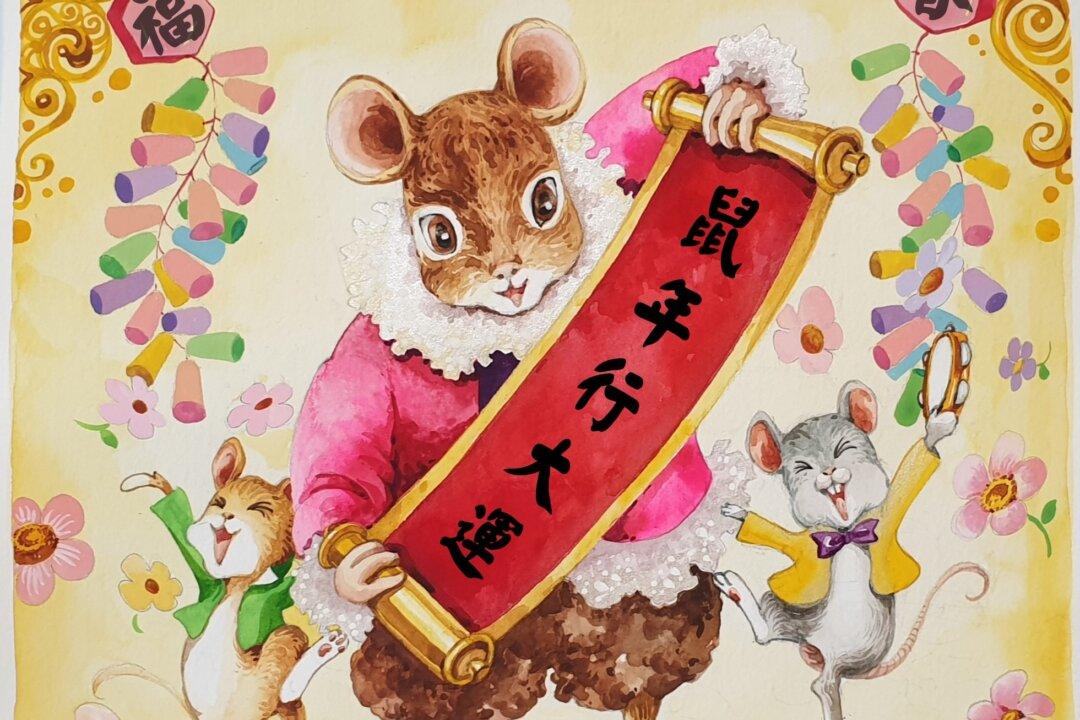The Chinese character 世 (shì) stands for world, an age or era, or a generation.
The world is typically referred to as 世界 (shì jiè) in Chinese, literally “the boundary of the world,” where 界 (jiè) stands for boundary, scope, or extent.
In this context, 全世界 (quán shì jiè) refers to the whole world, “all of the world,” or worldwide, where 全 (quán) means all, entire, or whole.
A century is called 世紀 (shì jì), while medieval or the Middle Ages is called 中世紀 (zōng shì jì).
世上 (shì shàng) refers to being in the world, literally “upon the world,” where 上 (shàng) stands for on top or above, while 世人 (shì rén) refers to humankind, literally “the world’s people,” where 人 (rén) stands for a person or people.
現世現報 (xiàn shì xiàn bào) refers to receiving a just retribution in the same lifetime, meaning that the evildoer will meet with evil returns very soon.




